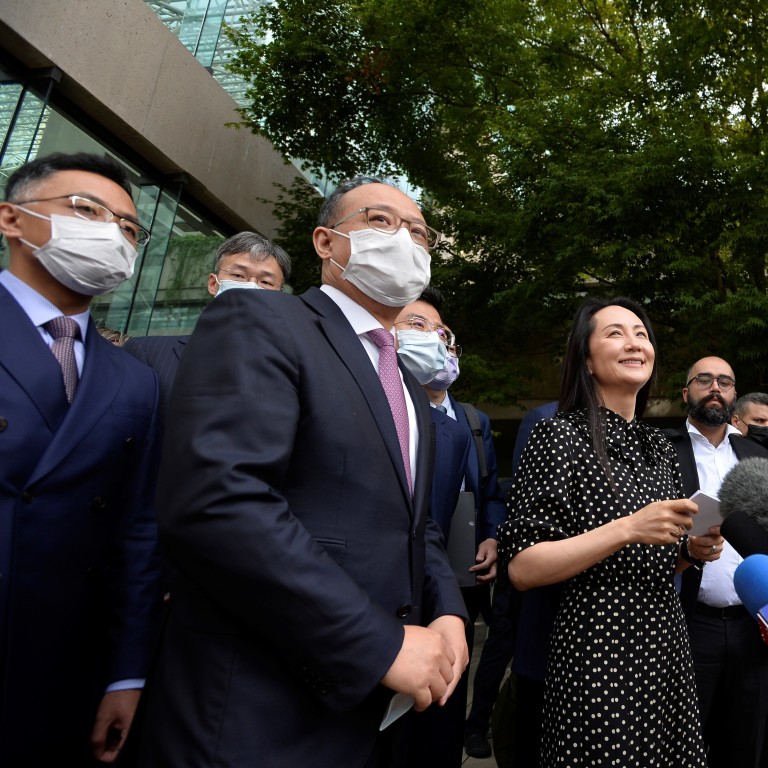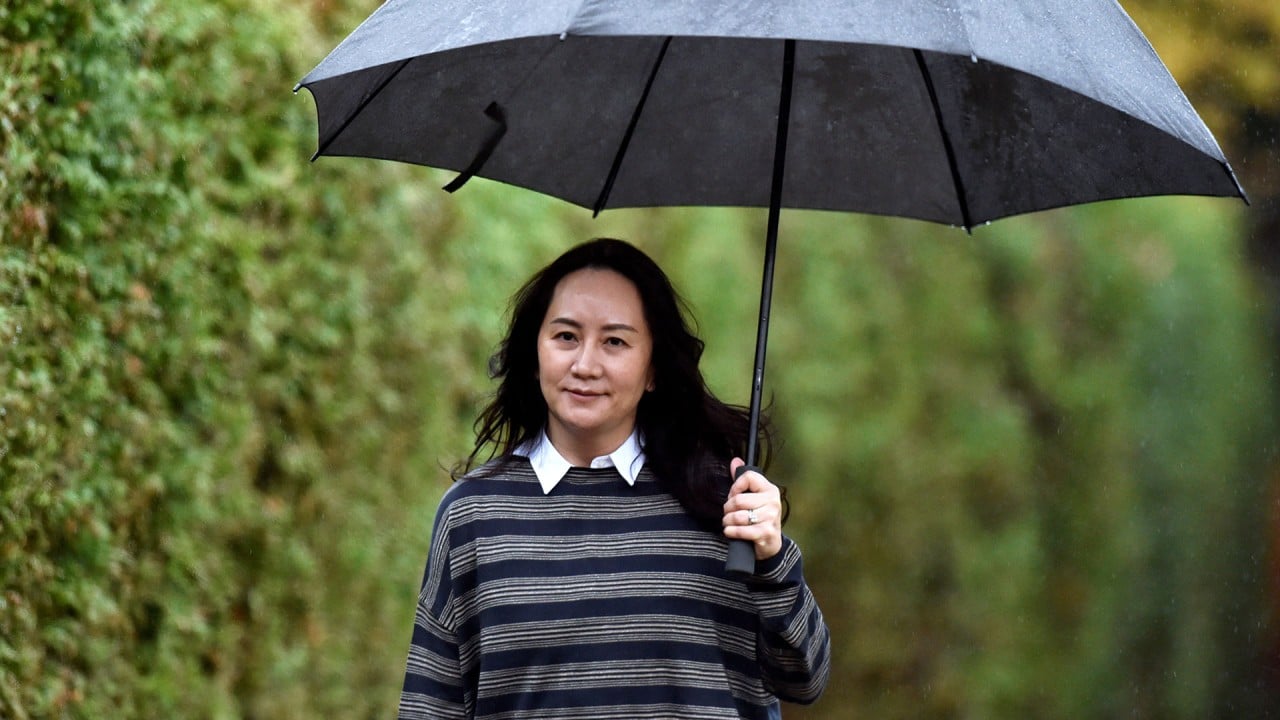
No crime and no punishment as Meng Wanzhou admits wrongdoing without guilt
- The deferred prosecution agreement struck with US prosecutors requires Meng admit to making untrue statements about Huawei’s business in Iran
- But it demands no form of ongoing cooperation from the Huawei executive, and the charges against her will be dropped entirely in December 2022
Instead, Meng admits wrongdoing without admitting guilt. The language employed by the US Department of Justice to describe the deferred prosecution agreement was at odds with that awkward and scant outcome.
“In entering into the deferred prosecution agreement, Meng has taken responsibility for her principal role in perpetrating a scheme to defraud a global financial institution,” said acting US attorney Nicole Boeckmann in a press release.
Huawei’s Meng Wanzhou flying back to China after striking deal with US
But when Meng was asked to respond to the four fraud and conspiracy charges against her, in a video appearance at a US Federal Court in Brooklyn on Friday, her response came through loud and clear, despite the shaky internet connection: “Not guilty”.
A deferred prosecution agreement typically includes both an admission of wrongdoing, and a requirement for some sort of cooperation from the accused, in return for the dropping of charges at a future date.
For example, deals struck between the US DOJ and HSBC – Meng’s purported fraud victim – included provisions for the bank to help US investigators probe various financial violations.
Meng’s deal includes admissions that she lied to HSBC, but that is as far as her obligations go – there is no cooperation requirement.
The deal is a scant five pages long. The main requirement is that Meng agree to a statement of facts (a further four pages long) that describes a meeting she held in Hong Kong in 2013 with an executive for “Financial Institution 1”, identified as HSBC in Meng’s now-dropped Canadian extradition case.
Meng agreed she knowingly provided untrue statements to the executive in a PowerPoint presentation about Huawei’s business relationship with Skycom, a company that did business in Iran.
Meng untruthfully called Skycom a “partner”; in fact, Huawei controlled Skycom. She also claimed that the Chinese telecoms giant had “sold all its shares in Skycom”, but this was also untrue, because the shares were sold to another entity that Huawei controlled.
She admitted that Huawei’s business dealings were in breach of US sanctions on Iran, and similarly caused the bank to be in breach, despite her claims otherwise to the banker.

04:43
How the arrest of Huawei CFO Meng Wanzhou soured China's relations with the US and Canada
Meng further agreed that she would not contradict anything in the statement of facts, and nor would she “state, suggest, or imply in any way that her entry into this agreement was involuntary, unknowing or coerced”.
Technically, the charges against Meng are still on the table, but they will be dropped completely on December 1, 2022 (the fourth anniversary of her arrest in Vancouver), if she abides by the deal.

